Croc star: Ivorian jewellery brand Ohiri has its roots in symbolism and sustainability
Ohiri jewellery sees shared cultures and symbolic motifs come to life
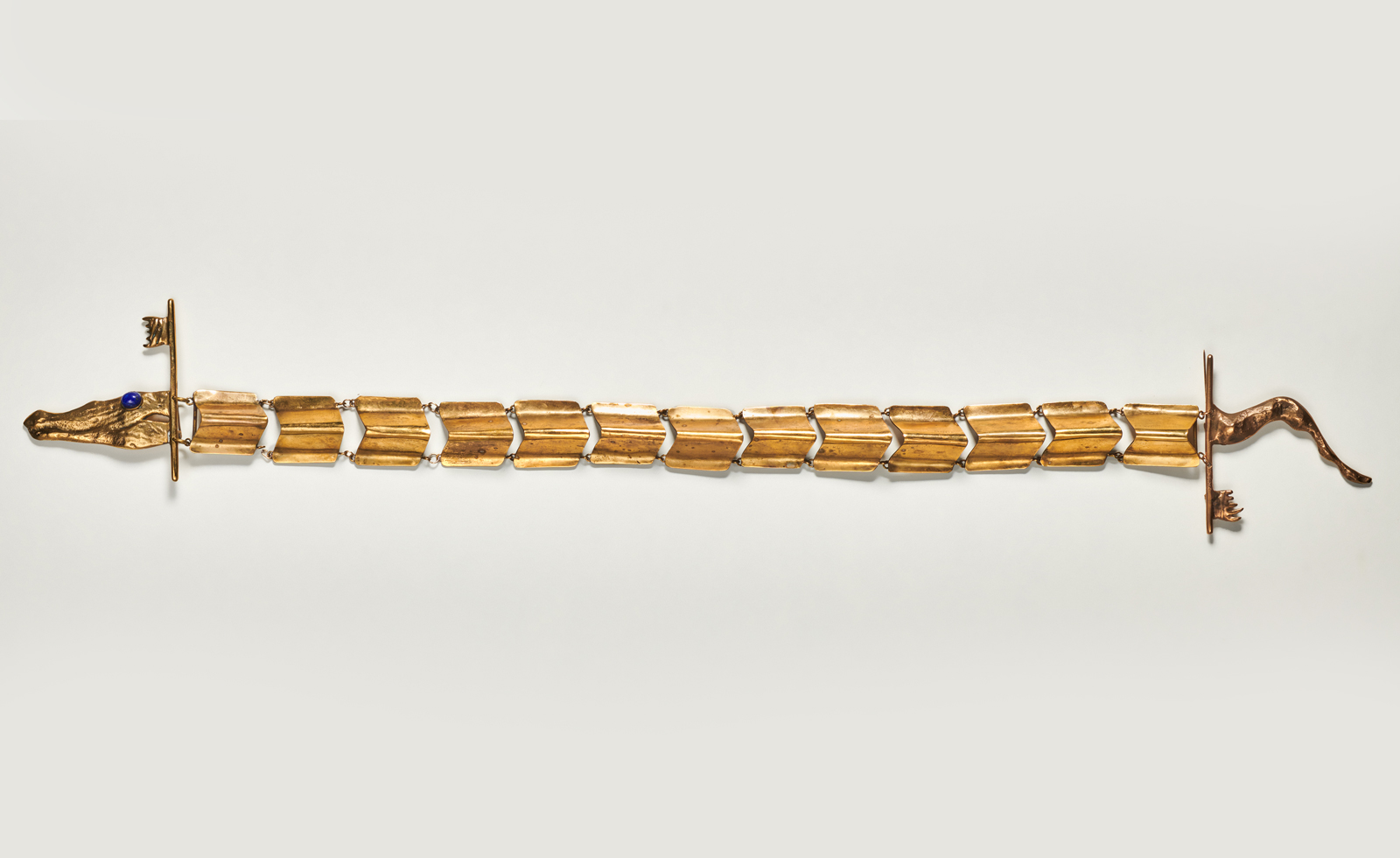
Founded in 2012 by the Ivorian-born, Paris-based designer Akébéhi Kpolo, jewellery brand Ohiri explores the diversity and commonality found across different West African cultures. ‘I was raised by parents who were in love with African culture, art and design,’ she says. ‘My friends used to say my house was like a museum because there were so many different forms of art. I don’t have a French name, I just have an Ivorian name as embracing our culture was so important.’
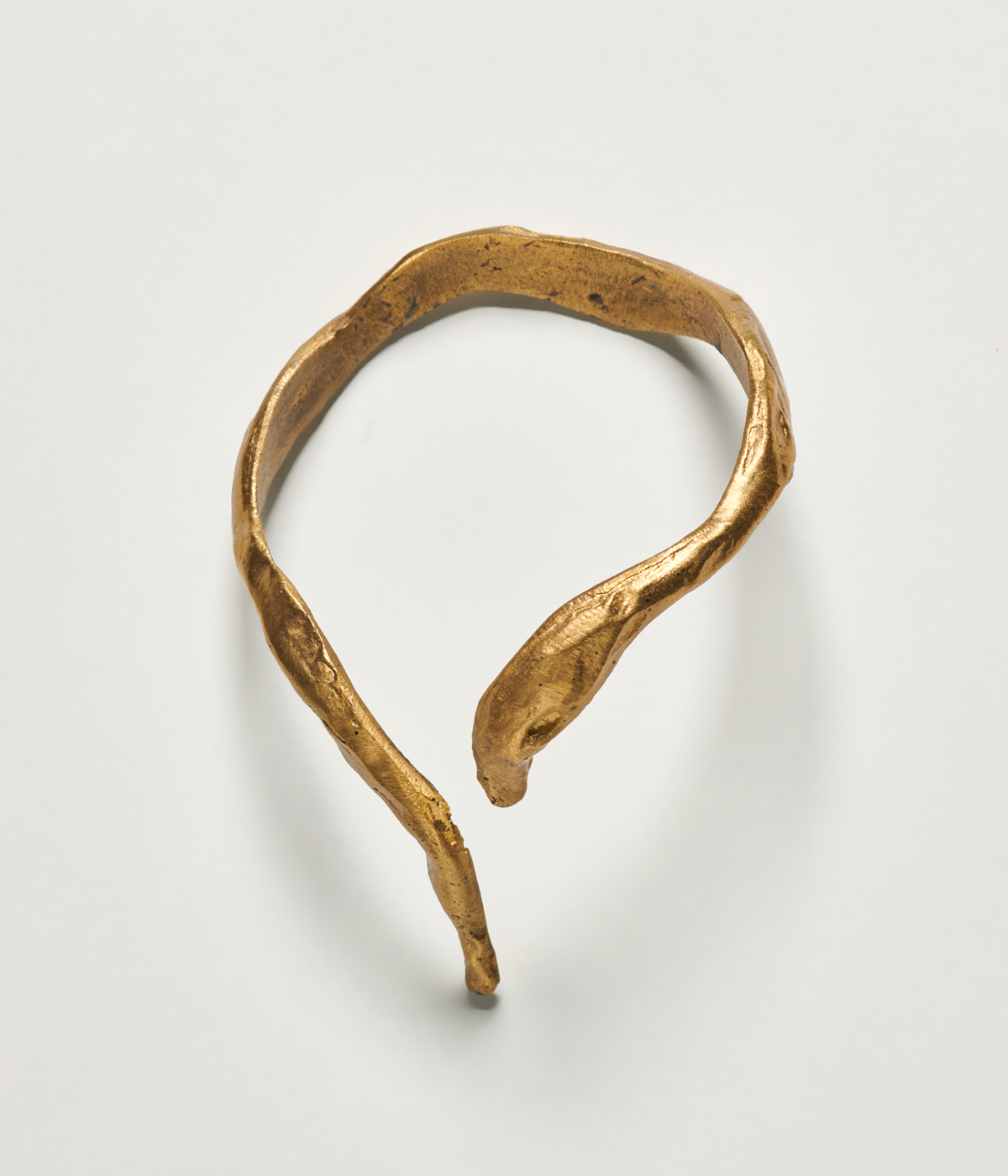
Kpolo articulates this through the lens of the Akan, an ethnic group present primarily in Côte d’Ivoire and Ghana. ‘I wanted to present the Akan culture in three different parts: firstly, via their making techniques, secondly, through the material they use, which is principally gold, and finally, the symbolism behind the pieces.’
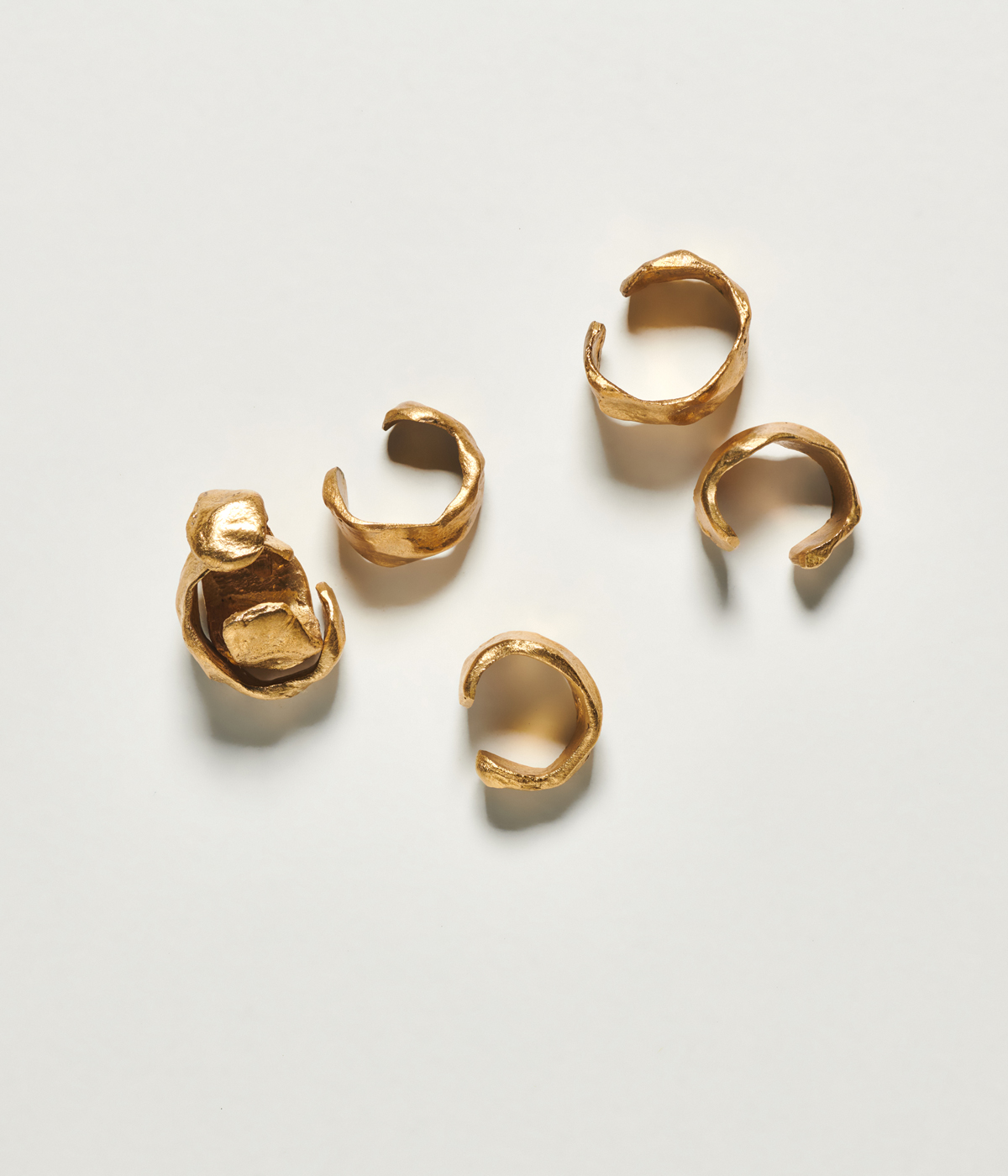
Kpolo’s S/S23 collection, Outlines (2), is a companion series to Outlines (1), her A/W22 art-jewellery ‘offering’ to an imaginary ‘crocodile king’. While the designer is from the Bété ethnic group, she has been interested in the jewellery of the Akan since she first encountered it on a family road trip aged 11. ‘We went for a traditional wedding in an Akan village. I was very impressed by the men and women wearing huge, beautiful gold jewellery.’
The Akan are known for adinkra, a system of symbols depicting concepts, mythologies and aphorisms often appearing in jewellery and textiles. The crocodile is sometimes depicted solo – denkyem – conveying its adaptable nature of living in both water and land, or as a pair with a conjoined abdomen – funtunfunefu denkyemfunefu – a visual exposition of the need for co-operation and compassion.
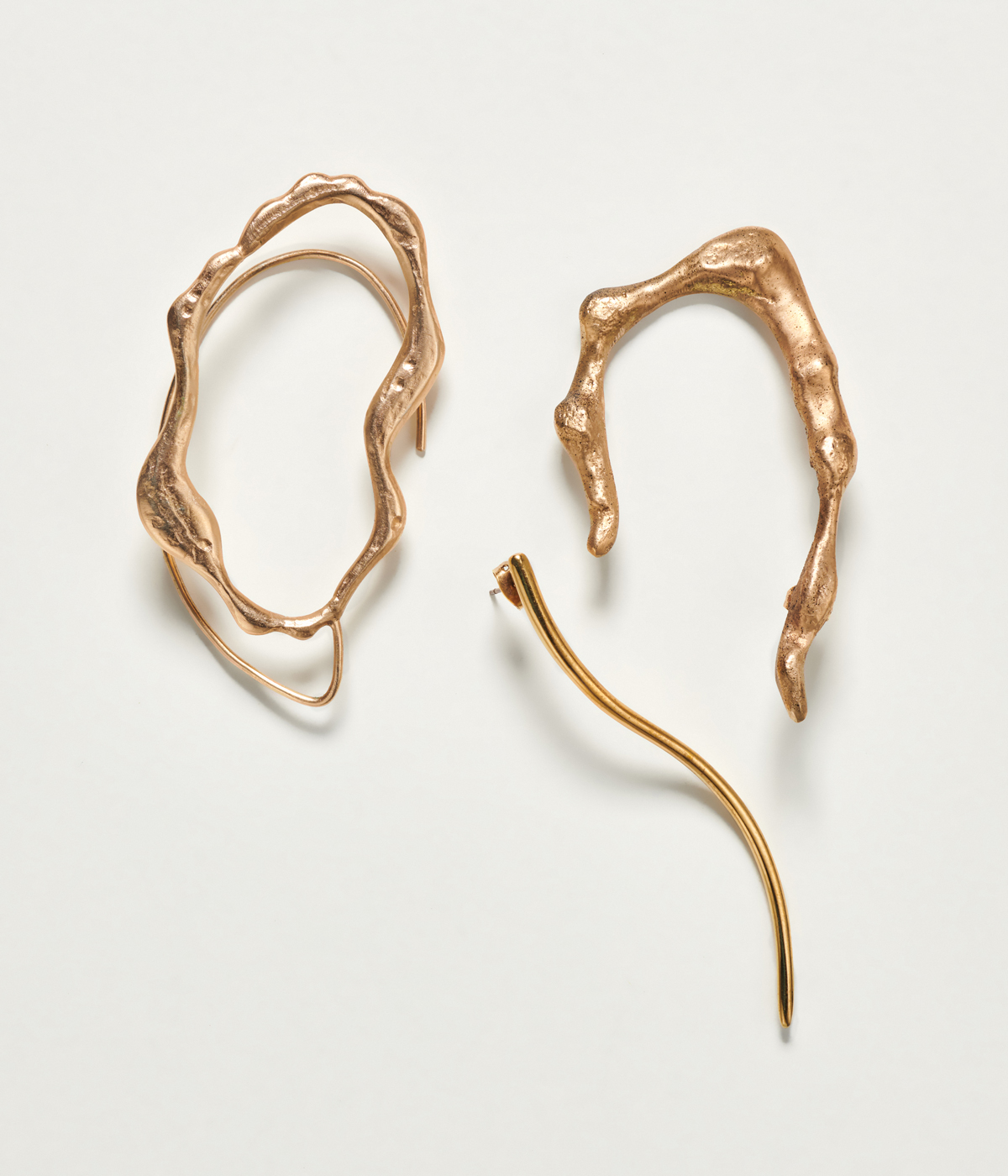
Kpolo decided to take a less didactic approach. ‘I started questioning the information we have and give. Maybe sometimes there is too much, and we are overwhelmed.’ This led to pieces that were less animalia and more interpretative. ‘I always use abstract forms. There is only one piece where there is a crocodile-like head and tail. For the other pieces, it is the texture, the movement. It’s like a conversation between the body and the pieces. I let people have the freedom to decide what they see and feel.’ The pieces are crafted in gold and lapis lazuli, which she was drawn to because, in her research, she found historical confluences between ancient Egypt, known for its affinity to the gemstone, and the Akan people.
In Kpolo’s native language, Ohiri means ‘something in development’, or as she elaborates, ‘something that is trying to reach the maturity stage’. It is also the first name of her mother, whom she cites as a muse: ‘My mother has a lot of jewellery from all over the world, including some pieces by [Nigerian-born, Kenya-based designer] Adèle Dejak, whose work I also love.’
Before founding Ohiri, Kpolo studied sustainable development, which is evident in the brand’s commitment to upholding traditional craftsmanship, participating in the expansion of the jewellery ecosystem in Africa, and ultimately moving all operations and production to Côte d’Ivoire. It participates in the Ethical Fashion Initiative (EFI), a UN-backed programme for fashion businesses in emerging economies, so production is in two locations: ‘The pieces are made by artisans in Côte d’Ivoire and then finished in an EFI-supported atelier in Kenya,’ she explains. But things are evolving. ‘The artistic scene in Côte d’Ivoire has grown, and African jewellery art is very complex, because the continent is vast. We come from different kinds of energy, different kinds of land, different kinds of inspiration.’
Wallpaper* Newsletter
Receive our daily digest of inspiration, escapism and design stories from around the world direct to your inbox.
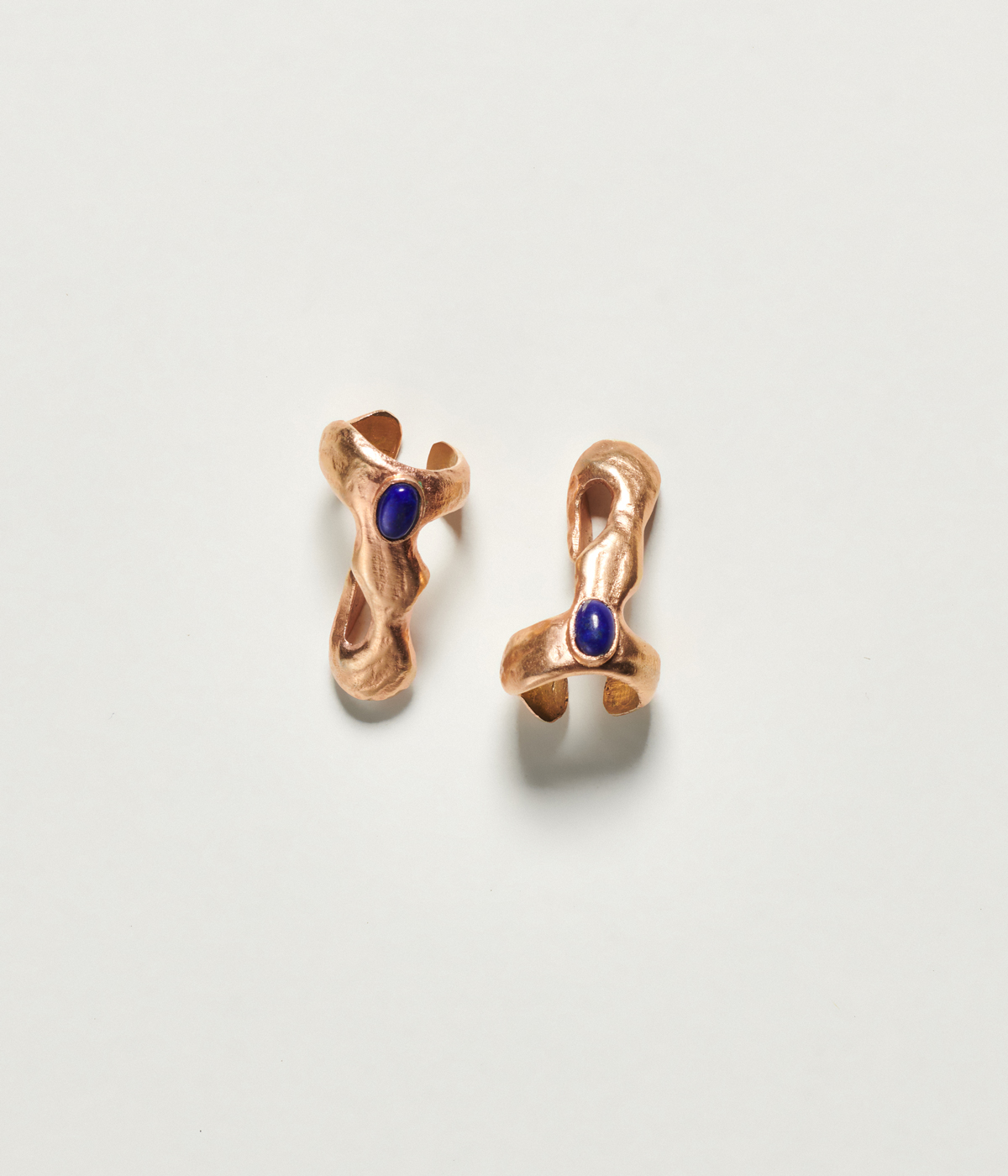
Long-term, Kpolo is determined to upend notions of African jewellery art as not being as refined or possessing the same intrinsic value as work from the Global North. To address this, she chooses stockists with a more curatorial modus operandi and rejects the title of ‘designer’. ‘I just create. For now, jewellery is my medium, tomorrow I could paint, and I am currently working on a commissioned project for tableware.’ A refusal to be pigeonholed allows her pieces to not only be appreciated as wearable art, but also as ones that could just as easily adorn the home. One cannot help but be reminded by the crocodile iconography – a reptile whose mutability allows it to exist in many habitats and, like Kpolo’s body of work, makes its presence undeniably felt.
A version of this article appears in the January 2023 Future Issue of Wallpaper*, available in print, on the Wallpaper* app on Apple iOS, and to subscribers of Apple News +. Subscribe to Wallpaper* today
Mazzi Odu is a Ugandan-British writer, editor and cultural consultant based in Lagos, Nigeria. Her work focuses on jewellery, design, fashion and art. An alumna of the London School of Economics and Political Science, she has profiled a cross section of leading design talents and creative voices, with a special emphasis on those from the Global South and its Diaspora communities.
-
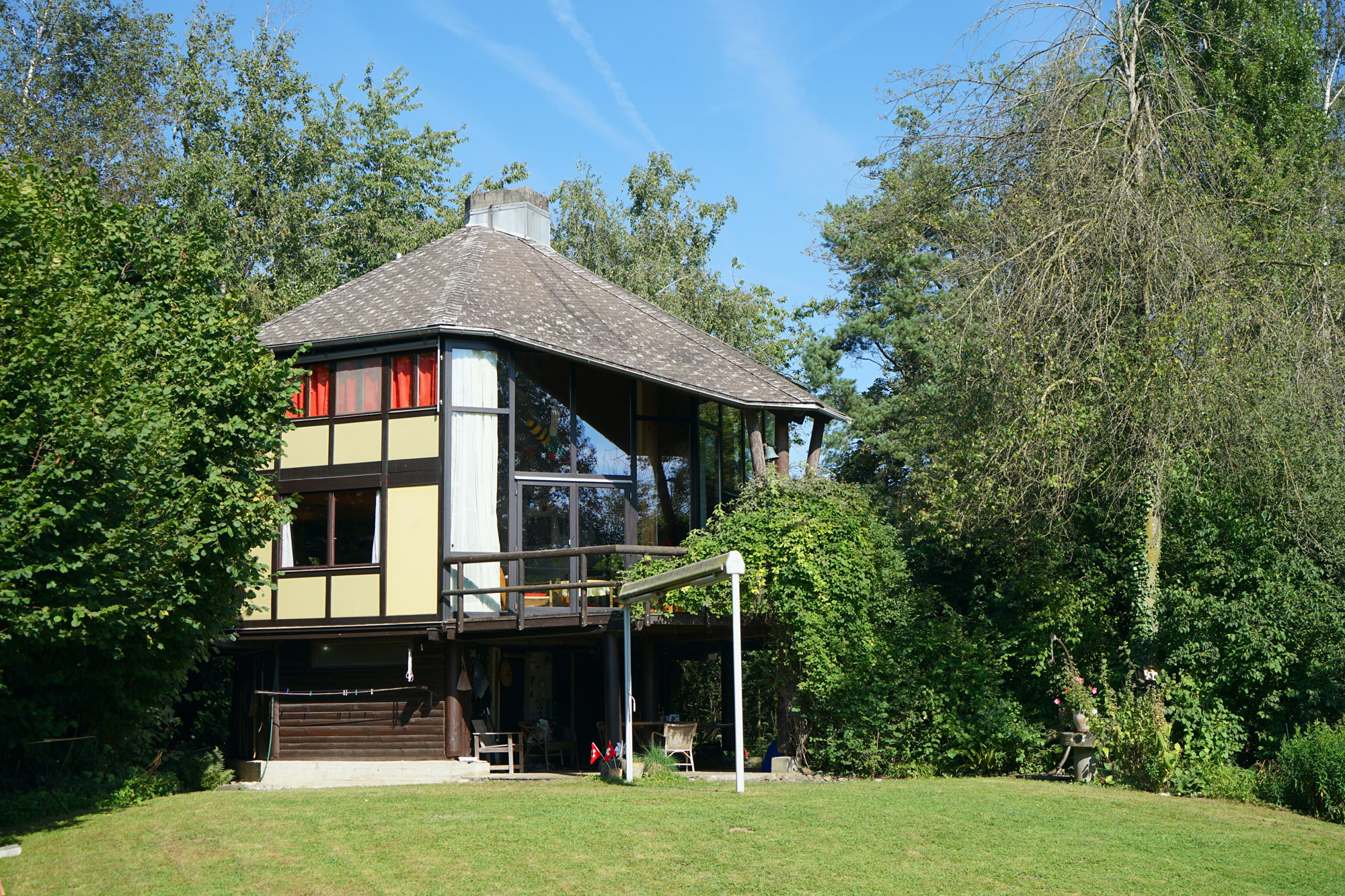 Meet Lisbeth Sachs, the lesser known Swiss modernist architect
Meet Lisbeth Sachs, the lesser known Swiss modernist architectPioneering Lisbeth Sachs is the Swiss architect behind the inspiration for creative collective Annexe’s reimagining of the Swiss pavilion for the Venice Architecture Biennale 2025
By Adam Štěch
-
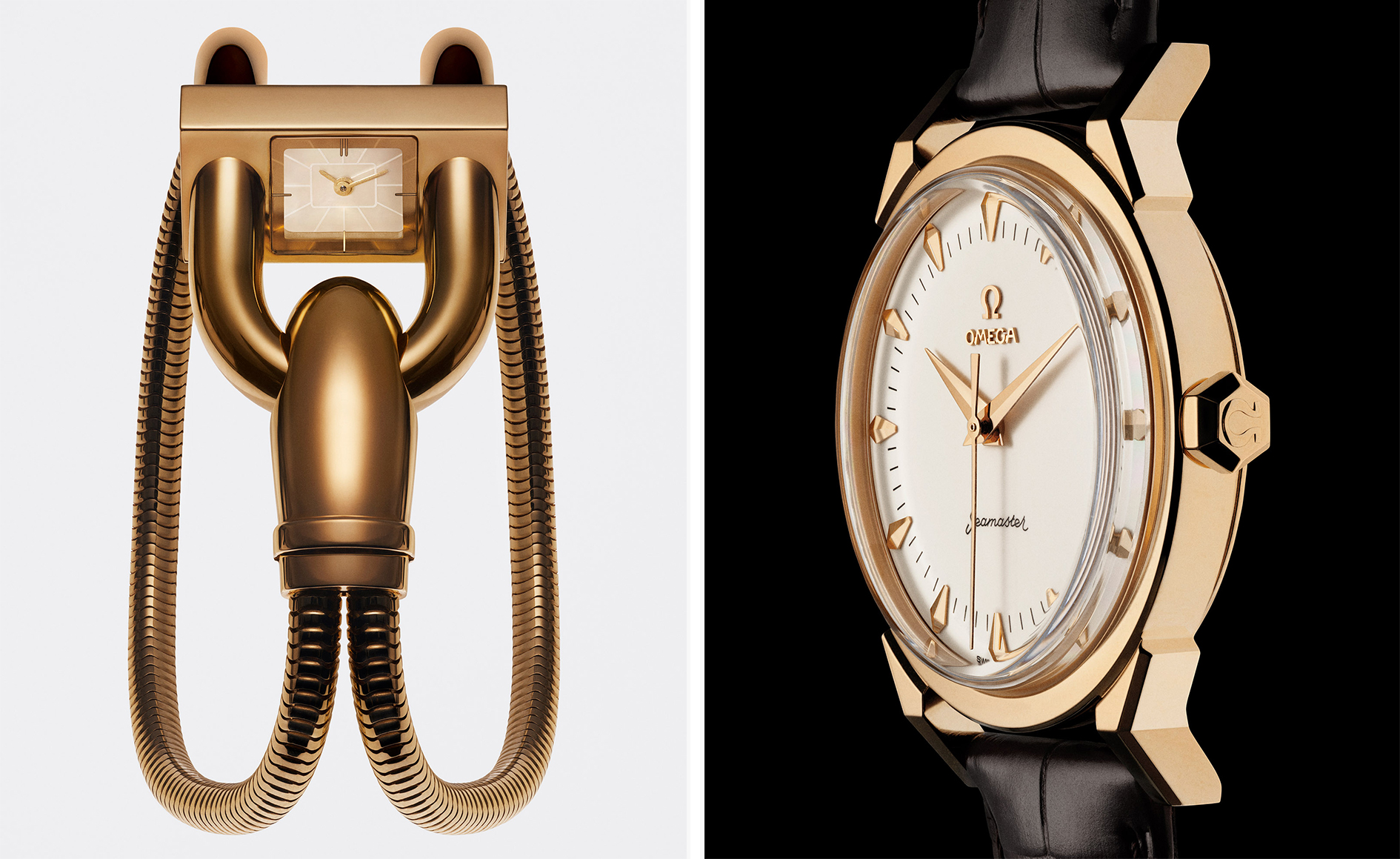 A stripped-back elegance defines these timeless watch designs
A stripped-back elegance defines these timeless watch designsWatches from Cartier, Van Cleef & Arpels, Rolex and more speak to universal design codes
By Hannah Silver
-
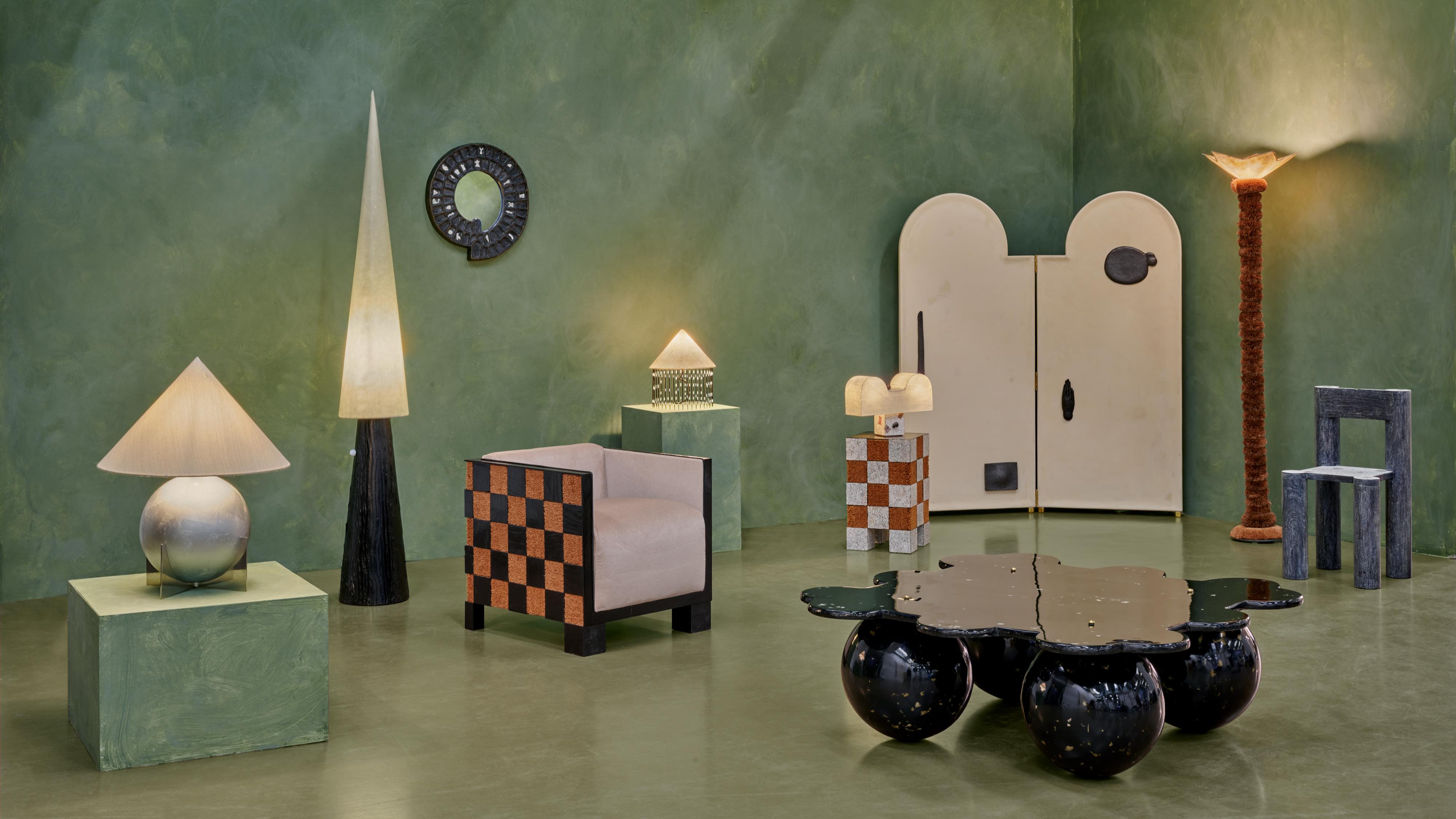 Postcard from Brussels: a maverick design scene has taken root in the Belgian capital
Postcard from Brussels: a maverick design scene has taken root in the Belgian capitalBrussels has emerged as one of the best places for creatives to live, operate and even sell. Wallpaper* paid a visit during the annual Collectible fair to see how it's coming into its own
By Adrian Madlener